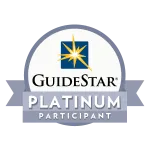
A House Built of Solid Rock: Building and Presenting a Solid Child Abuse Case in a Family or Juvenile Court Environment
Using a factual scenario, this training will enable attendees to comprehend how to assemble a cohesive case in instances of physical and sexual abuse, including locating and presenting corroborative evidence and witness testimony. The workshop will cover handling digital evidence, summoning child witnesses to court, and effectively presenting their testimony while respecting their needs. It will delve into trial preparation


















































